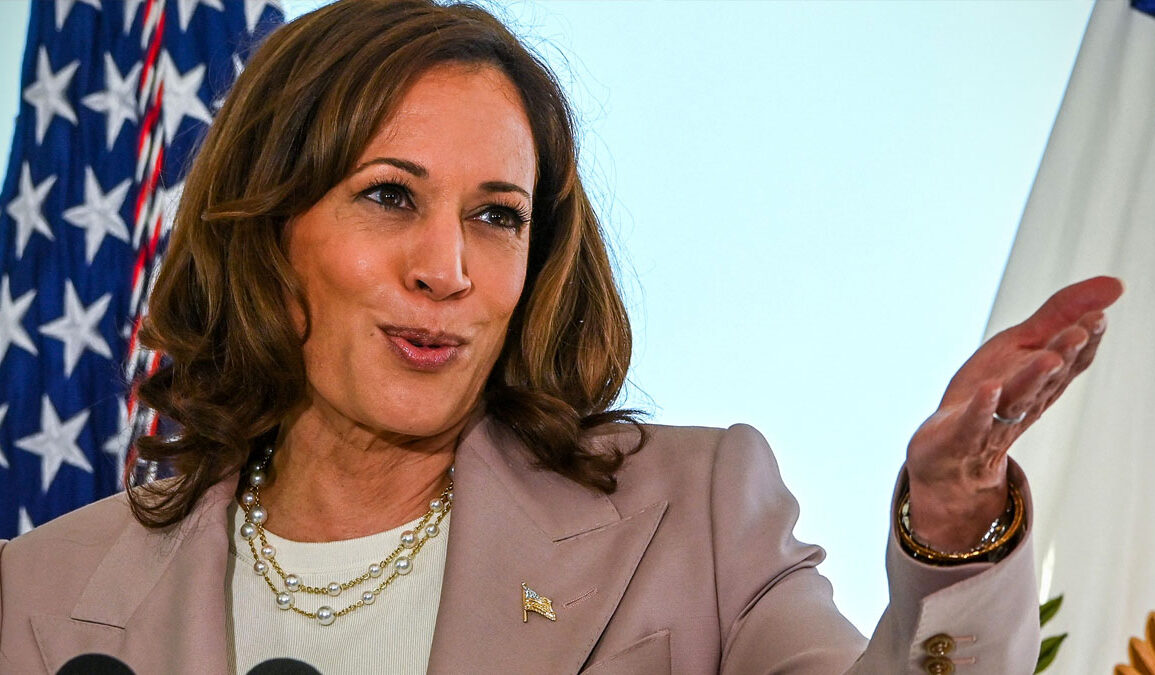Kamala Harris’s upcoming memoir, “107 Days,” aims for a dramatic reveal. In an excerpt, she writes that it was “recklessness” to let Joe and Jill Biden decide whether he should seek a second term. “It’s Joe and Jill’s decision. We all said that, like a mantra, as if we’d all been hypnotized,” she admits. Then she asks, “Was it grace, or was it recklessness? In retrospect, I think it was recklessness.” She doubles down by saying, “This wasn’t a choice that should have been left to an individual’s ego, an individual’s ambition. It should have been more than a personal decision.” The message is simple. If only someone had stopped Joe, everything would have gone differently.
Harris tries to soften the blow by praising Biden’s mind while highlighting his age. “Joe Biden was a smart guy with long experience and deep conviction, able to discharge the duties of president,” she writes. In the very next breath she concedes, “But at 81, Joe got tired. That’s when his age showed in physical and verbal stumbles.” She also denies there was any grand cover-up, saying there was no “big conspiracy” to hide frailty. The balancing act is clear. She wants credit for honesty about risk while insisting Biden was capable. That is quite a needle to thread.
Harris reports that she considered telling Biden not to run but decided she was the wrong messenger. “And of all the people in the White House, I was in the worst position to make the case that he should drop out,” she writes. “He would see it as naked ambition, perhaps as poisonous disloyalty, even if my only message was: Don’t let the other guy win.” Translation. She saw the iceberg and chose not to shout iceberg. Later, she faults the captain for the collision.
Harris Dances the DC Two-Step
Harris now frames Biden’s second run as a mistake because the stakes were too high. Voters did not need a memoir to understand the stakes. They lived the outcomes. Prices climbed and families leaned on credit. Border crossings surged and overwhelmed cities far from the Rio Grande. Crime became a constant partisan food fight. Afghanistan ended with a deadly, chaotic exit that stained foreign policy. Russia advanced in Ukraine after a disastrous 2024 debate turned confidence into panic. Iran’s proxies grew louder while the White House tried to please all sides. Even Harris’s allies admit the June 2024 debate was “disastrous,” and Biden dropped out weeks later after pressure from Democrats and then endorsed her. None of that backstory came from her communications staff. It came from reality.
Harris says Biden’s inner circle shaded her accomplishments and feared her outshining him. “Their thinking was zero-sum. If she’s shining, he’s dimmed,” she writes. She complains the White House did not adequately defend her against the “DEI hire” smear or correct critics who called her the “border czar,” even as she worked on investment in Central America. Yet the public saw a candidate who rarely risked unscripted exchanges and who often felt overproduced. When voters asked for clarity, they got pre-arranged town hall questions and carefully managed appearances. That is not an optics problem caused by someone else’s press office. That is a campaign problem.
The Rogan episode that says the quiet part out loud
If one story captures the competence gap, it is the failed attempt to book Joe Rogan. Harris’s team contacted Rogan’s representatives less than a month before the election to reach wavering male voters. Rogan’s standard conditions were not secret. No topic limits. No staff in the studio. In person at his Austin studio. Harris’s deputies tried to shift the location, then proposed a date that conflicted with Rogan’s personal day. When offered a narrow Saturday morning slot, “only if it’s before 8:30 a.m.,” they balked. Days later the Associated Press reported that Trump would be Rogan’s guest on the same day. Harris’s aides fumed that hoops were being raised. The reporting concludes something far less dramatic. The vice president’s team staged a Texas rally before confirming the interview and then abandoned the project when basic conditions did not bend. That is not media sabotage. That is campaign malpractice.
Harris argues that Republicans “mischaracterized my role as ‘border czar’” and that the White House “helped me to effectively push back” far too rarely. She notes she secured billions in private investment commitments for Latin America. Fair enough. But the public judgment did not hinge on job titles or internal memos. It hinged on the simple fact that illegal crossings spiked while cities strained to cope. You can insist you were not the czar. Voters still saw the chaos.
The candidate voters did not want to buy twice
After 2024, even many Democrats were not eager for Harris at the top of the ticket in 2028. A poll cited in coverage showed her behind other names with Democratic voters. That is not a sign that staff jealousy ruined a rising star. It is a sign that the brand never resonated. The campaign often felt like a TV set where the audience could never ask a question. When a rare chance for a broad, skeptical audience appeared, it slipped away.
Harris wants credit for loyalty to Biden’s capacity and credit for calling out the risk of his run. She writes that the choice “should have been more than a personal decision,” then explains why she said nothing that might have mattered in time. The logic reduces to this. She knew better, but speaking up would have looked bad, so she did not. Now she wants to be seen as the clear-eyed adult in the room. Voters can spot the gap between courage and commentary.
“107 Days” reads like a long subtweet of the administration that made her vice president. Harris blames a reckless decision by Biden, a jealous inner circle, hostile Republicans, and an unfair press environment. What it never quite owns is the thing that matters most. The administration’s results weighed down the ticket, and the candidate at the top of the replacement ticket did not persuade enough people to forgive those results. That is not on Joe and Jill alone. That is on the person now selling a book about how everyone else should have done the hard thing she chose not to do.








